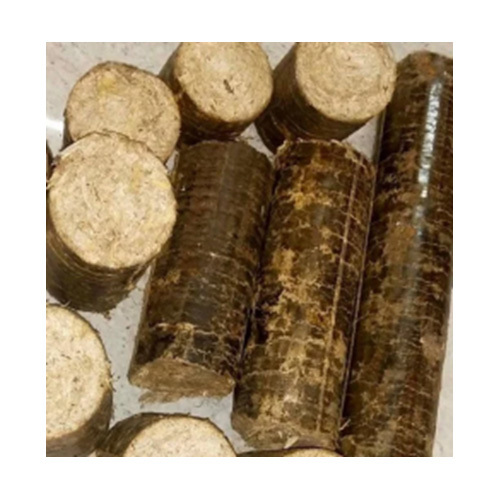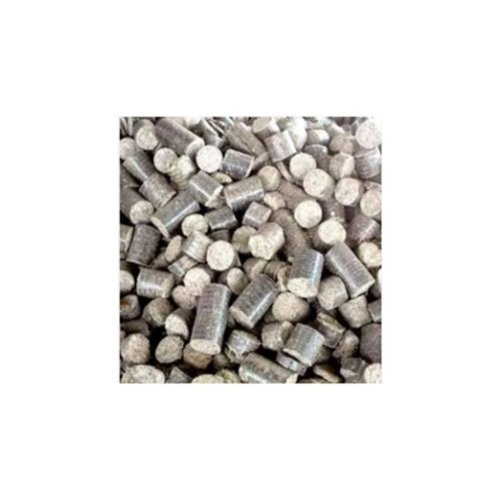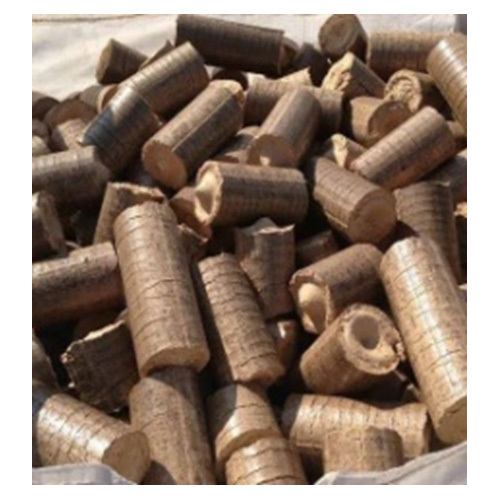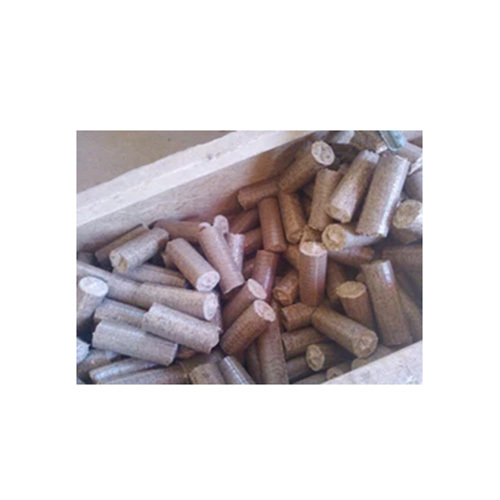90mm Paddy Straw Briquettes
Price 9600.0 INR/ Ton
90mm Paddy Straw Briquettes Specification
- Gross Calorific Value
- 3950kcal
- Size
- 90mm
- Material
- Paddy straw
- Shape
- Cylindrical
- Moisture (%)
- 5%
90mm Paddy Straw Briquettes Trade Information
- Minimum Order Quantity
- 10 Tons
- Payment Terms
- Cash in Advance (CID)
- Delivery Time
- 7 Days
- Sample Policy
- Contact us for information regarding our sample policy
- Main Domestic Market
- All India
About 90mm Paddy Straw Briquettes
Paddy Straw Briquettes are solid biofuel made by compressing dried rice straw (paddy straw) into dense 90mm cylindrical briquettes without any chemical additives. With a high calorific value of 3950 kcal/kg, low moisture (5%), and a competitive price of Rs 9.65/kg, these briquettes are engineered for industrial boilers and high-heat applications. They serve as an eco-friendly and cost-effective alternative to coal, reducing both emissions and fuel costs.
Product Specifications:
| Parameter | Value |
|---|---|
| Diameter | 90 mm |
| Raw Material | 100% Paddy Straw |
| Calorific Value | 3950 kcal/kg |
| Moisture Content | 5% |
| Ash Content | Moderate (typically 1518%) |
| Price | Rs 9.65/kg |
| Form | Cylindrical Briquette (Log Form) |
| Application | Industrial Boilers, Kilns |
Key Features & Benefits:
-
High Calorific Output: 3950 kcal/kg ideal for industrial energy demands.
-
Agricultural Waste-Based: Utilizes surplus crop residue, reducing open-field burning.
-
Low Moisture (5%): Enhances combustion quality and energy efficiency.
-
Moderate Ash: Requires basic ash management, but cleaner than raw straw.
-
Highly Economical: Among the lowest cost biofuels per kcal delivered.
-
Boiler-Friendly Size (90mm): Designed for large-scale industrial combustion systems.
Applications & Use Cases:
-
Industrial Steam Boilers:
Widely used in textile mills, food processing, distilleries, and dyeing plants. -
Kilns & Furnaces:
A stable heat source for ceramic, lime, and brick kilns replacing coal or wood. -
Thermal Energy Units:
Ideal for hot air generators, thermic fluid heaters, and biomass furnaces. -
Agro-Based Power Plants:
Can be co-fired or used as a primary fuel in biomass co-generation projects.
Frequently Asked Questions (FAQs)
Q1. What is the source material for Paddy Straw Briquettes?
A1. They are made from compressed rice straw, an agricultural residue commonly found in paddy-growing regions.
Q2. Are these briquettes compatible with coal boilers?
A2. Yes. They can be used in most coal-fired or wood-fired industrial boilers with minimal or no modification.
Q3. Do they produce a lot of ash?
A3. Paddy straw briquettes typically produce moderate ash (1518%), but significantly less than raw straw and manageable with standard ash-handling systems.
Q4. How do they compare to other biomass briquettes?
A4. They offer similar calorific value to rice husk and bagasse briquettes but at a lower cost, making them a budget-friendly fuel option.
Q5. Can they be stored long-term?
A5. Yes. When stored in dry conditions, paddy straw briquettes maintain their quality for 812 months or more.
Q6. Do they help reduce environmental impact?
A6. Absolutely. They reduce stubble burning, lower CO emissions, and support clean energy goals.


Price:
- 50
- 100
- 200
- 250
- 500
- 1000+
More Products in Biomass Briquettes Category
90mm White Coal Briquettes
Price 12000.0 INR / Ton
Minimum Order Quantity : 10 Tons
Size : 90mm
Material : White Coal
Shape : Cylindrical, Other
Moisture (%) : 6%
90mm Rice Husk Briquettes
Price 13000.0 INR / Ton
Minimum Order Quantity : 10 Tons
Size : 90mm
Material : Rice husk
Shape : Other, Cylindrical
Moisture (%) : 5%
90mm Brown Bagasse Briquettes
Price 10500.0 INR / Ton
Minimum Order Quantity : 10 Tons
Size : 90mm
Material : Bagasse
Shape : Other, Cylindrical
Moisture (%) : 5%
 Send Inquiry
Send Inquiry



